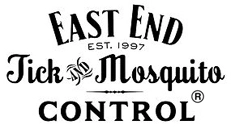You may have seen the recent headlines – an American citizen contracted the tick-borne Powassan virus (while traveling to Canada) and passed away upon returning home. While shocking, it isn’t surprising.
Tick-borne illnesses are spreading into new regions – including parts of the northern U.S. – where there already have been fatalities. Powassan is still relatively rare, but there are other tick-borne illnesses that can cause severe symptoms and even result in death.
Whether you stay at home on Long Island or travel to another region, you should be aware of tick-related diseases in the area and take precautions to avoid tick encounters.
How Likely Are You to Get Sick from a Tick?
Your likelihood of contracting a tick-borne illness varies widely and depends on several factors:
- Tick species: Each species carries specific diseases. If you are bitten, take care to correctly identify what type of tick it was and to watch for symptoms of illnesses that species transmits.
- Location: You are more likely to contract certain tick-borne illnesses within specific geographical ranges.
- Time: The longer a tick is attached to your skin, the more likely it is to transmit any disease it carries.
Can Tick Disease Cause Death?
Tick-borne illnesses can be fatal – especially among the very young, the elderly, and the immunocompromised. In addition to Powassan virus, other potentially deadly tick-borne viruses include:
- Rocky Mountain spotted fever
- Anaplasmosis
- Ehrlichiosis
- Bourbon virus
- Heartland virus
Even Lyme disease occasionally results in lethal cardiac complications. Fortunately, tick-borne illnesses are rarely fatal, and most have death rates at or below one percent.
What Is the Deadliest Tick Disease?
Other tick-borne diseases may garner more attention, but Rocky Mountain spotted fever (RMSF) is the deadliest. Named for the western region where it was first detected, RMSF is carried by the American dog tick.
Rocky Mountain spotted fever is now found throughout much of the U.S. – including along the eastern seaboard. If left untreated, RMSF is fatal for approximately 20 percent of people who contract it. Among those who undergo antibiotic treatment, there is a four percent fatality rate.
Tick Avoidance Tips for Travelers
- Do your research: Before your trip begins, check online for the most current information regarding which tick species and tick-borne diseases are present at your destination. The Centers for Disease Control (CDC) is an excellent source for both domestic and foreign tick maps.
- Wear tick-resistant clothing: Pack long-sleeved shirts and long pants that cover as much skin as possible. Choose light-colored clothing… ticks that land on you will be more visible.
- Use tick repellent: Products containing DEET or permethrin are effective tick repellents. Follow instructions on the container carefully and – if you’re flying to your destination – check TSA regulations about how to pack these items.
- Do a tick check: Every time you come indoors from an area that may provide tick habitat, do a thorough head to toe search for ticks.
- Remove ticks promptly: If you are bitten by a tick, remove it from your skin immediately. Identify the tick’s species and (if feasible) save it in case you need to show it to a physician.
Were There More Ticks in 2023?
Because of a warming climate, tick breeding season is lasting longer than ever – leading to significantly larger tick populations. Ticks remain active longer, as there are fewer days when the temperature dips below the 50-degree threshold they need to go into dormancy mode. This also results in tick species migrating into areas where they previously had no presence.
East End Tick & Mosquito Control® Offers Year-Round Protection
Protect yourself by being well-informed and tick-aware when you travel. When you’re home, East End Tick & Mosquito Control® can provide year-round protection from tick threats. With over 20 years of experience, our professionals look forward to serving your family and keeping them safe. Contact us online for a free quote, or call (631) 324-9700 in East Hampton; (631) 287-9700 in Southampton, or (631) 765-9700 in Southold.


